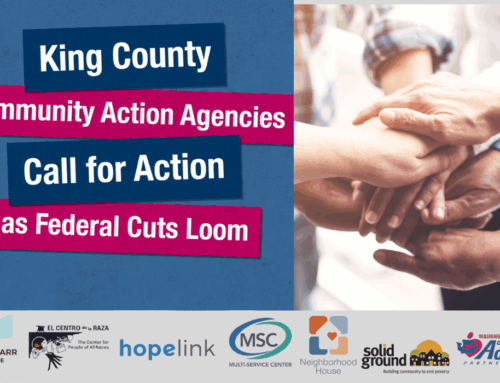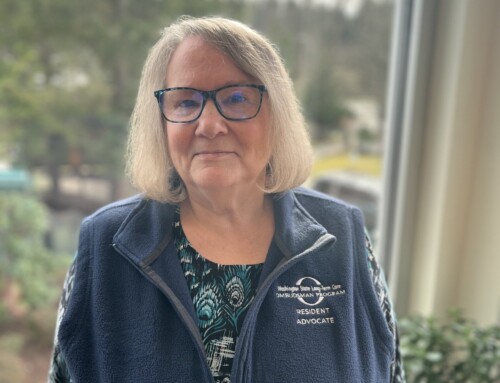“You often hear of issues around finance and healthcare decisions with Powers of Attorney and guardianships. But a huge issue we see in long-term care facilities is the guardian or POA agent restricting the elder’s relationships, such as who they can see and socialize with,” says Patricia Hunter, Washington State Long-Term Care Ombuds. “The real issue is about how we help vulnerable adults maximize their choices and help them facilitate their wishes.”
The Washington State Long-Term Care Ombuds, a program of MSC, advocates for residents of nursing homes, adult family homes, and assisted living facilities to protect and promote their resident rights under Federal and State laws and regulations.
“There is often a lot of confusion between Powers of Attorney and guardianships,” shares Hunter, “so it is really important to see the actual legal papers because they are very different in the way they affect someone’s rights.”
“A guardianship is sort of like the ultimate substitute decision maker,” says Hunter. “A guardianship can only happen through a court of law and it is very formal. The court will determine what rights will be taken away, whether full or partial. The POA is much less formal and is really about choosing someone who can help you make decisions and be your agent when you can’t do so. We recommend that everyone has a POA.”
A very common scenario seen by the Long-Term Care Ombuds is siblings disagreeing over care issues of a parent with cross-allegations of neglect and financial mismanagement that lead to restricting access to an elder. This generally happens due to a misunderstanding over the powers granted by a POA and is usually an emotional time for all involved, with issues between siblings obscuring the care or needs of the elder.
As a result, it often isn’t clear whose direction the long-term care provider should follow, and often Adult Protective Services is brought in and a guardianship proceeding started. The Ombuds can help with the process of working through these issues and helping family members learn how to do healthy and safe visits that don’t put the elder in the middle, and don’t disrupt care.
“There is a concern about how to balance resident legal rights when there is a guardian or POA who doesn’t realize they have those rights,” says Patricia.
Recognizing these issues, the Washington State Legislature passed HB1402 which directs both the Long-Term Care Ombuds and the Office of Public Guardianship to create trainings to help alleviate this confusion. The Ombuds training is geared towards long-term care facilities, while the Office of Public Guardianship will create trainings for the legal community.
While focused on training providers, management, and staff at long-term care facilities, the training produced by the Ombuds shares information on POAs and guardianships that are helpful for everyone. The training consists of two audio-visual trainings of about 40 minutes each that can be viewed in segments and accompanying resource guides. The trainings are available to the public at https://www.waombudsman.org/education/decision-making/.
“These trainings will help providers and staff at long-term care facilities know what to watch for in terms of legal agents overstepping their authority and respecting a resident’s right to choose who they socialize with,” says Patricia. “There is already a lot of isolation for someone in a facility, it is important they have relationships. The hope is that we can give accurate information about what they can and can’t do, and how they can improve relationships for their client’s well-being.”
“Guardianships are very necessary and some people are very in need. In fact, there is a shortage of public guardians in this state for several different reasons. Vulnerable adults may have no one who can step forward to make decisions for them,” shares Patricia. “This training will help to ensure that resident rights are respected and honored.”
An attorney is recommended to help you create a durable Power of Attorney; however, free or low cost legal clinics and resources are also available at www.kcba.org and www.nwjustice.org. None of the above information should be considered legal advice. If you or someone you know is in a long-term care facility and have questions about your rights, call 1-800-562-6028.






